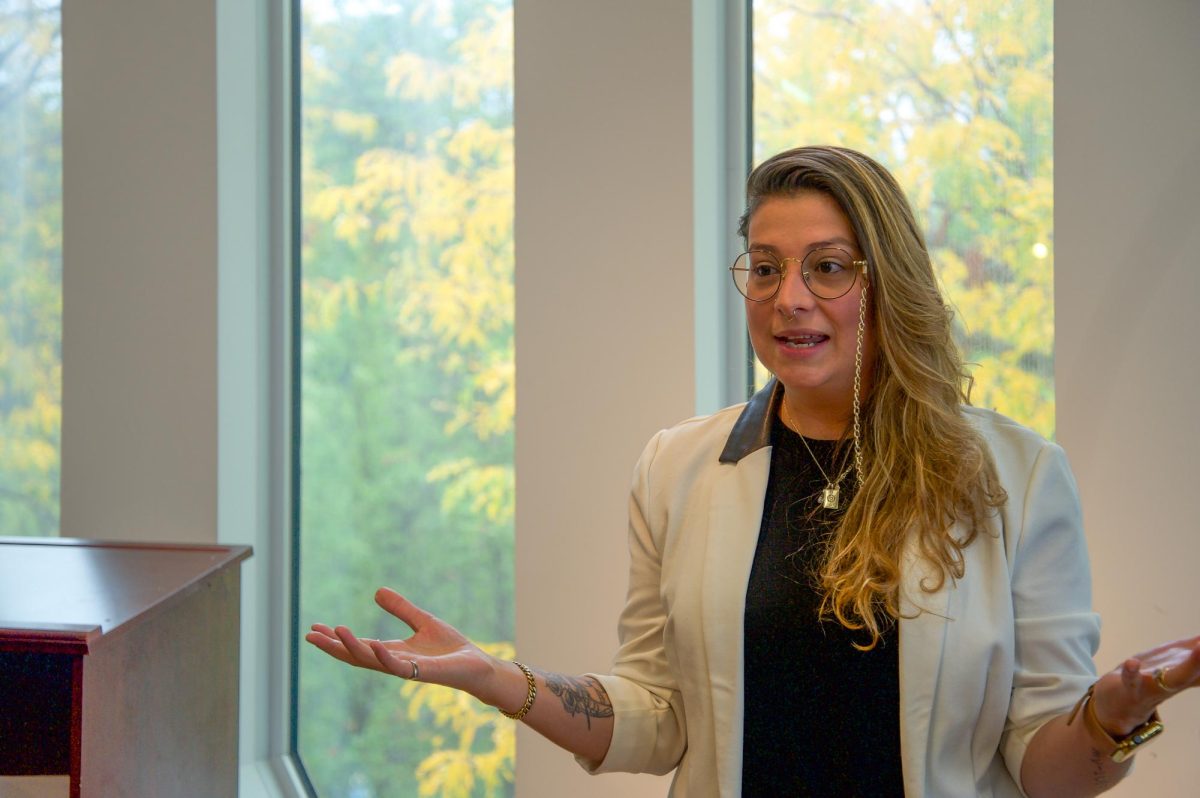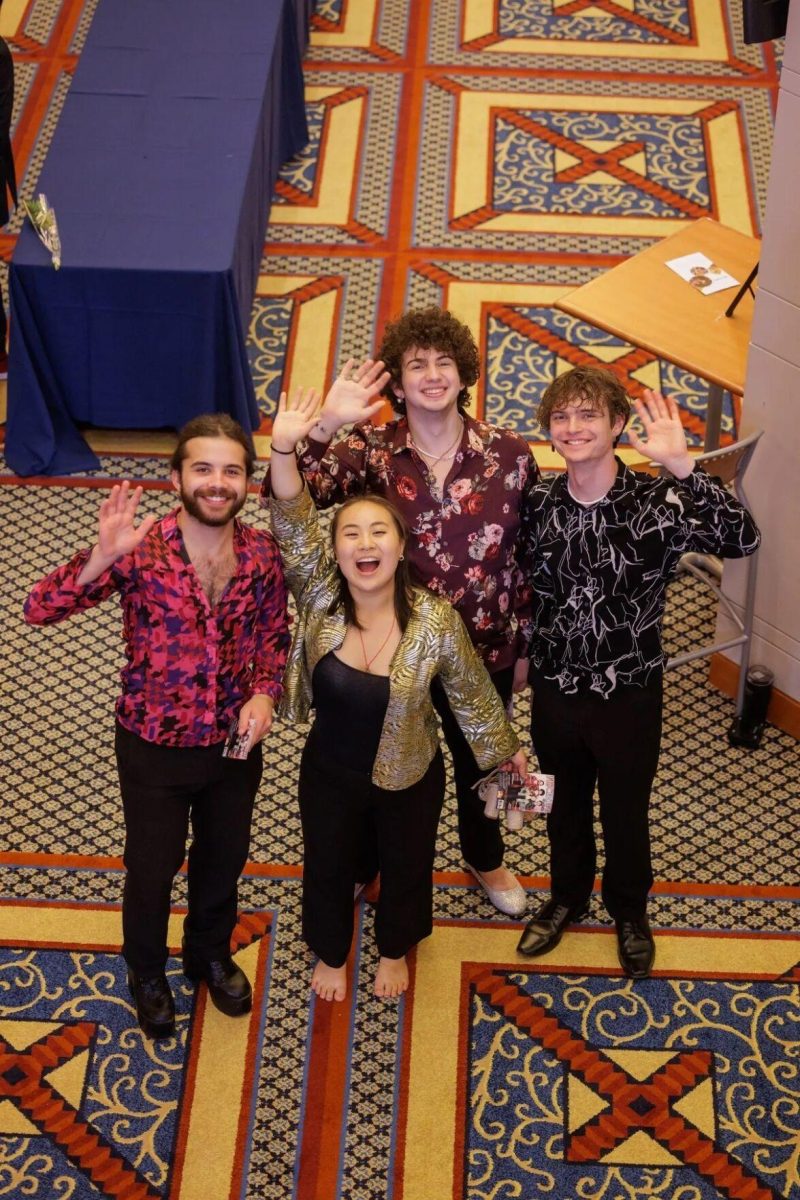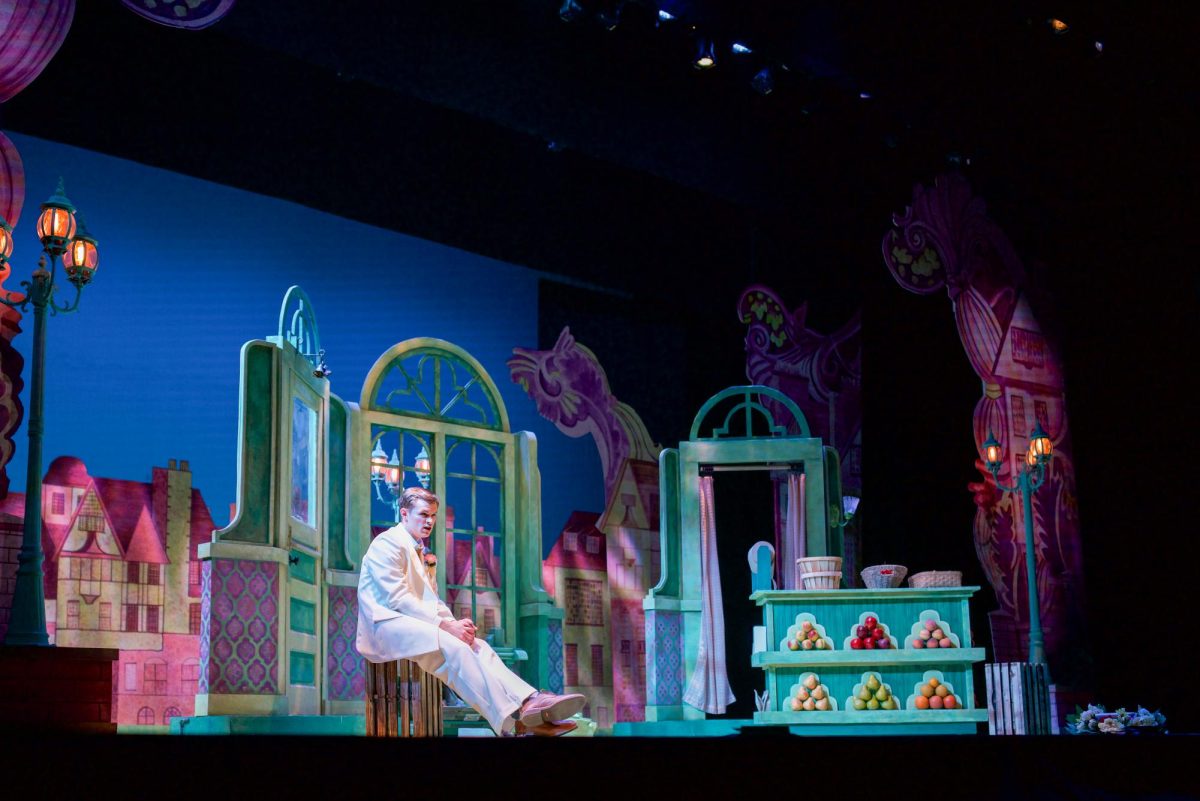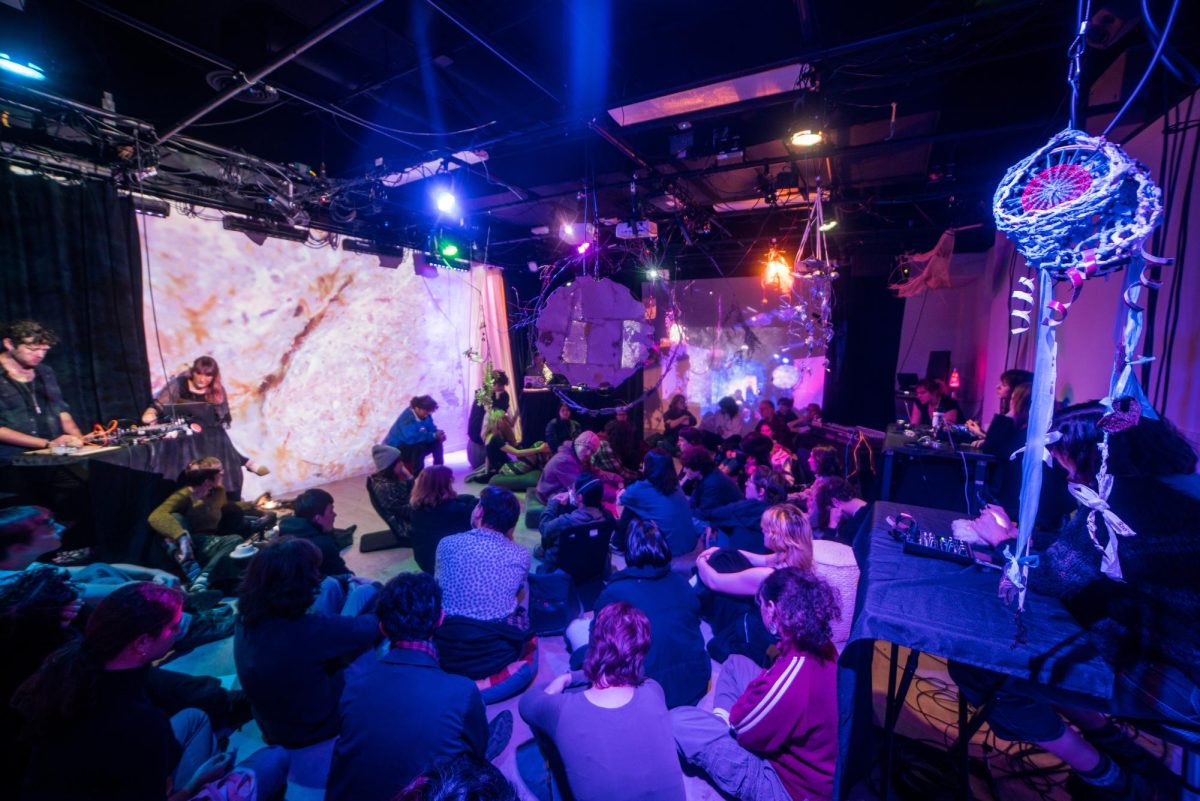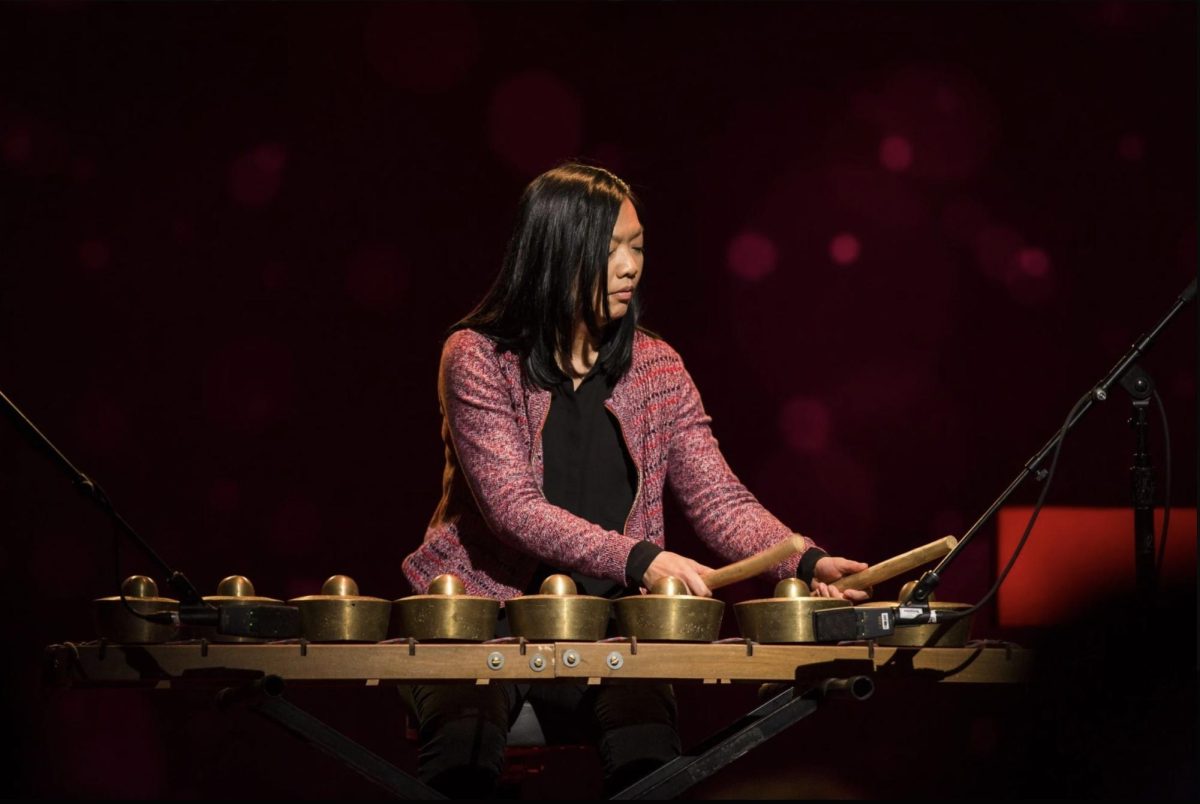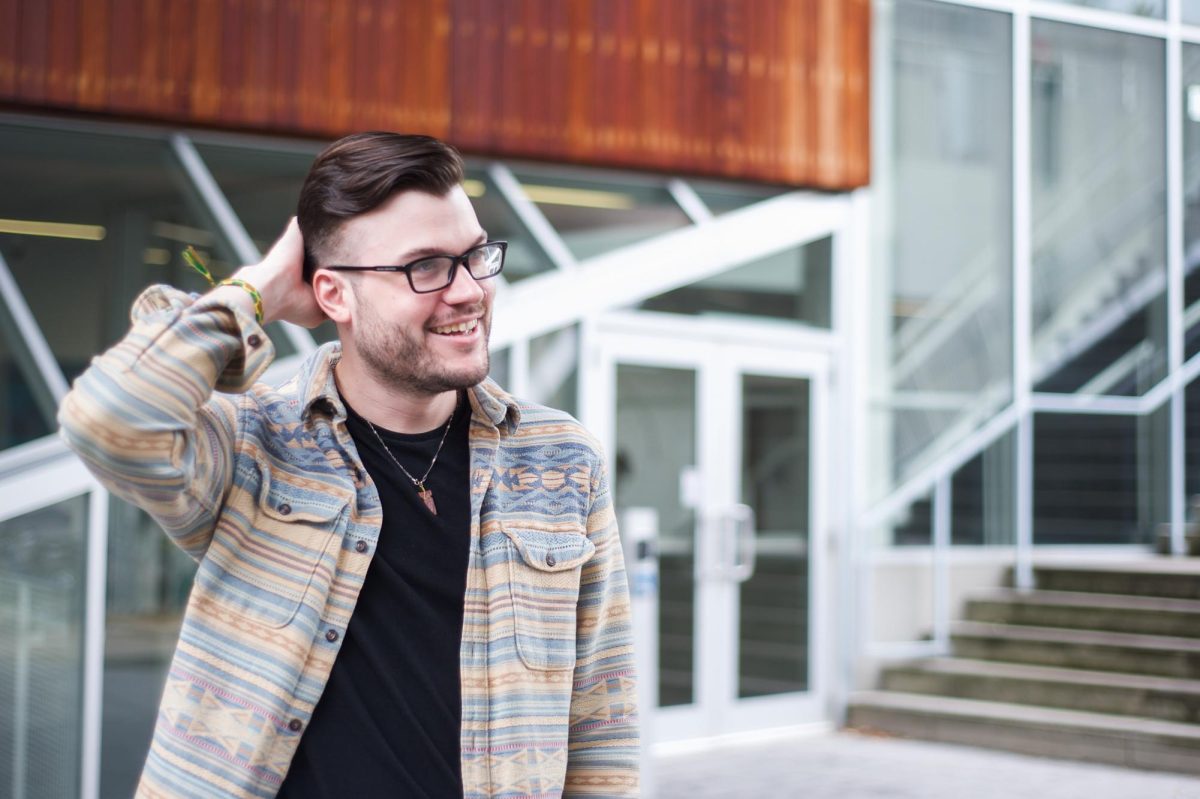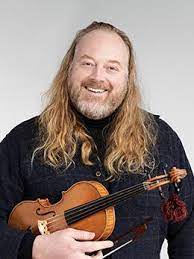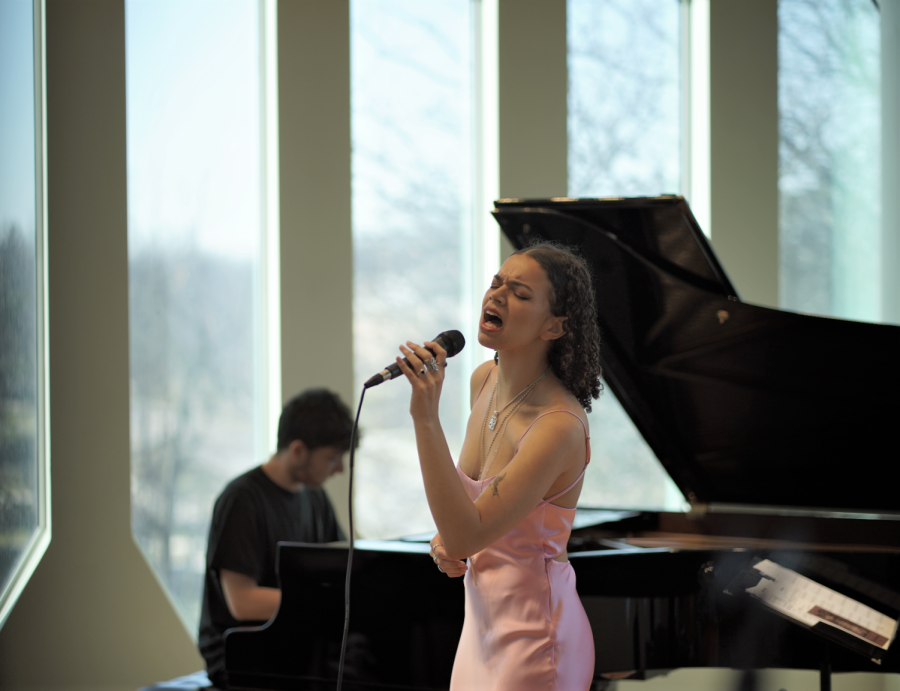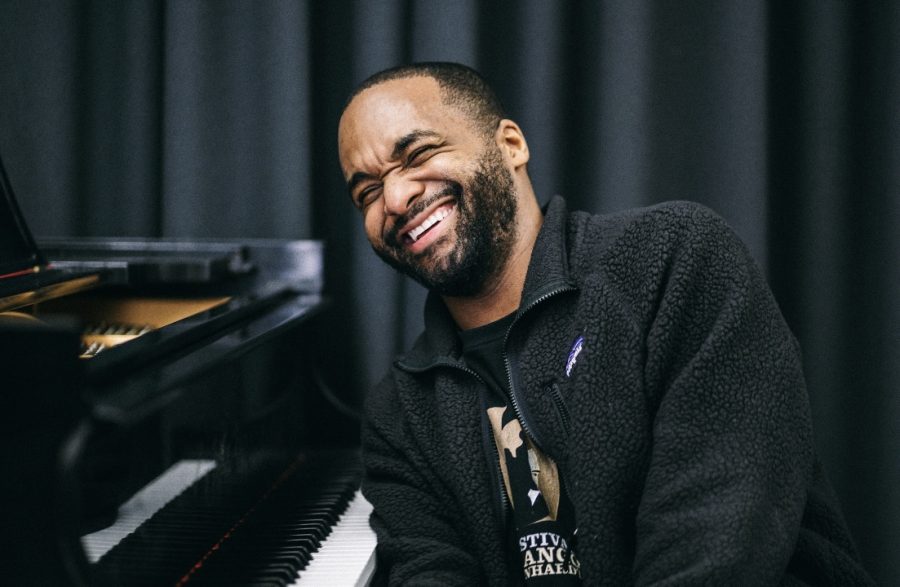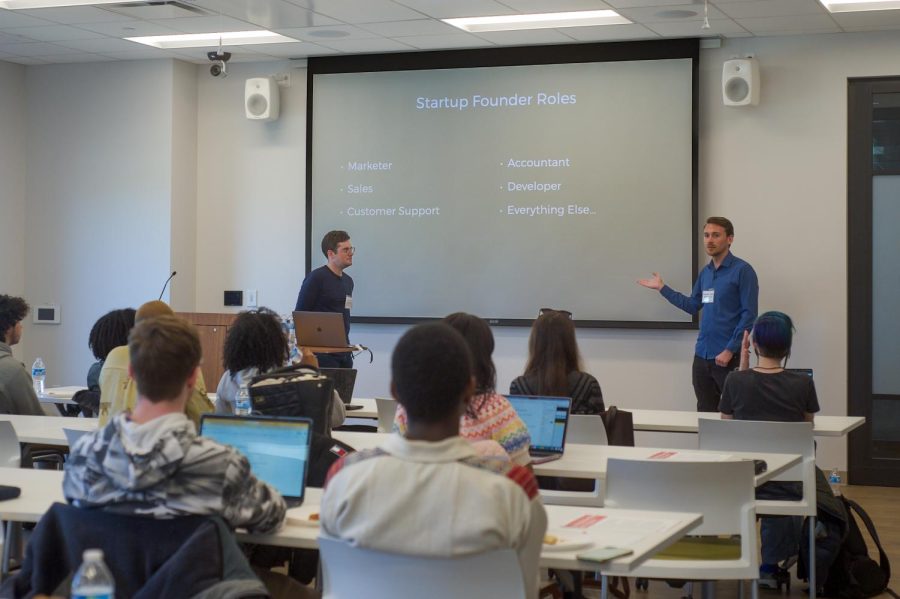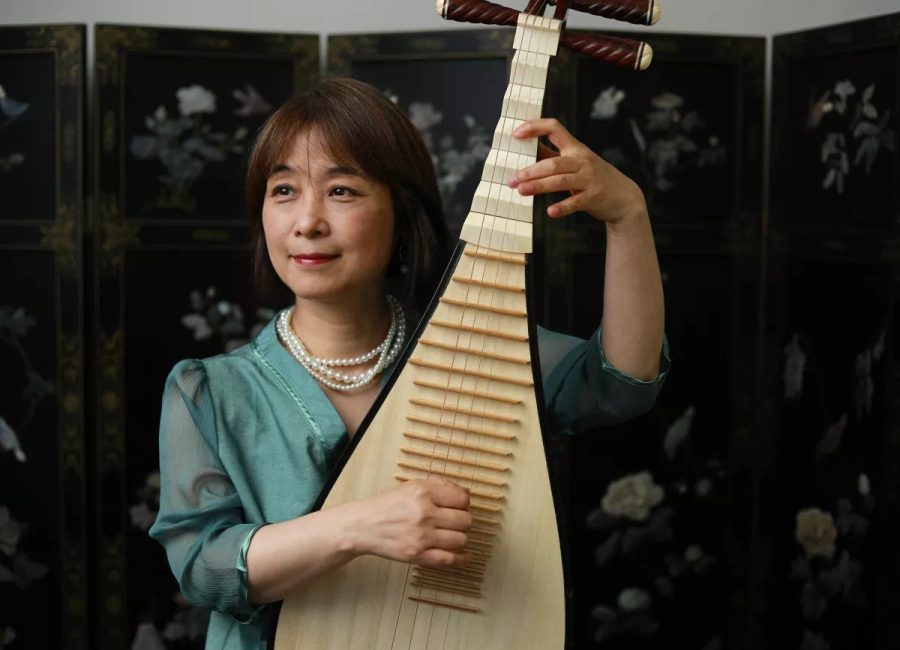Dominique Arciero is a singer-songwriter currently based in Los Angeles. After performing with her two sisters in a band called the Lunabelles, Arciero turned to writing and recording her own music. She has created award-winning records and collaborated with many prolific musicians.
Originally from Brazil, Maíra Vianna studied at Berklee College of Music. The multi-talented singer and instrumentalist works as an audio engineer for the Rock and Roll Hall of Fame. Prior to their Wednesday “Engineering Techniques and Career Chat,” they spoke to the Review about their musical journeys.
This interview has been edited for length and clarity.
What initially sparked your interest in sound engineering, and how did you take your first steps in this field?
MV: I came to the United States to be a musician. While I was in Brazil, I tried to record my own songs and my friends’ songs. I didn’t know much about it, but I did it anyway. When I got to Berklee for the Jazz program, I started talking with producers, and my interest in being on the other side of the window started to grow. I got an internship at the Rock and Roll Hall of Fame as an audio visual technician, and that was it. I’m living the dream right now because I get to do my own music, and I get to do music for my friends. I do live music for a bunch of bands that I would never get to know if I wasn’t working at the Rock and Roll Hall of Fame.
DA: I started out as a kid in a band with my three sisters. We wrote our own music when we were 8, 10, 12, and 14. It sounds funny, but we got a record deal in Nashville 15 years later, already experienced with making our own music. I observed so many different producers and studio situations. I was always soaking it up, but didn’t ever expect to be the one eventually working with Pro Tools. After my band left Sony in 2012, I had all this time to work on my own solo stuff, and that’s just what happens. I learned on my own, taught myself Pro Tools and Logic, and then I got deeper into the engineering side of frequencies and plugins. My music is pretty acoustic, so I always experiment with how both electronic sounds and real instruments can play together.
Is staying up-to-date with recent technology and software an important aspect of sound engineering?
DA: I have a friend who is an amazing multi-instrumentalist, musician, songwriter, and producer. He works with big acts, and his home studio only has tape. He records to cassette tapes and sends them off — very analog and pretty cool. He’s not resistant to working with the latest, newest technology in a studio setting, but at home, it’s fun for him. Sound engineering can look so different.
MV: I agree. That’s the cool thing about music and producing and being an audio engineer, because you can make good things with just your phone nowadays. If it’s a grungy project, you can go to your basement and do this really dirty song, and there will be an audience that finds that awesome. Technology does not necessarily dictate whether your product will be good or not.
What are your favorite projects you’ve worked on?
MV: One that came to mind was my first physical CD. I didn’t mix or master it, but I recorded, composed, and played some of the instruments. It’s called The Fool because I felt like a fool for pursuing my dream and coming to this different country where I didn’t have any money or connections. But it paid off. I’m very proud of that project.
DA: I don’t really have a favorite project per se, but you have to be proud of that first time that you go out and make your own self-composed and self-produced project. That takes some guts. I have a soft spot for my first EP release, which was a collaboration with my husband. We were just friends then, so it was a really fun time getting to know each other in the studio.
What is one piece of advice you would give your younger selves as you were starting out on this career path?
DA: The word ‘play’ comes to mind — just having fun with it. When you start out in the business so young, it can be difficult. And it is a job — I was working at 12, 13 years old. It was just what I did, and I didn’t have lots of years of experimentation. Everything we made was being assessed. I was trying to get to the next step, get those relationships going. Now I’m in the phase of my life where I’m able to just play and enjoy music for the fun of it. And I wish I had done that more in my younger years, but hindsight is 20/20.
MV: Music is worth it if you’re doing it just because you love it. Somehow you’re gonna end up in a good place. Doing it just for fun takes Wthe pressure away, and you might be more creative or explore more things. Another thing that I would say to my younger self is don’t compare yourself; everyone is on their own journey. There’s so many ears on this planet; there will be someone who wants to hear what you have to say. Just go — keep swimming.


